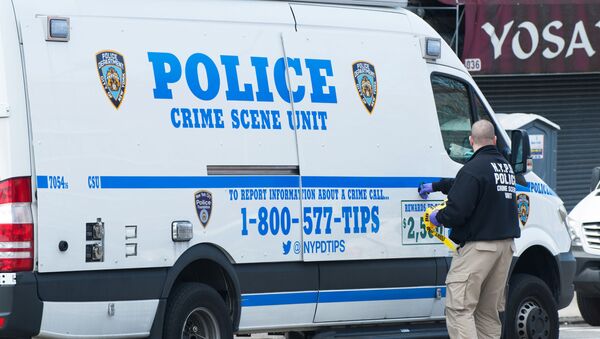The Philadelphia Police Department announced Tuesday that it would delay arrests for an array of crimes, including narcotics offenses, thefts, burglary, vandalism, prostitution, stolen cars, economic crimes, such as bad checks and fraud, and any existing bench warrants, according to a memo obtained by the Philadelphia Inquirer.
“If an officer believes that releasing the offender would pose a threat to public safety, the officer will notify a supervisor, who will review the totality of the circumstances and utilize discretion, in the interest of public safety, in determining the appropriate course of action,” the memo states. The police force will also be halting its “live stop” vehicle impoundment program.
In the United States’ massive prison system, which is the world’s largest by population at more than 2 million incarcerated persons, there are contradictory reactions. While some prison systems, like those in the Federal Bureau of Prisons, the Cook County, Illinois, prison system, and the California Department of Corrections, have opted to end visitation hours in a bid to stem person-to-person flow of the disease, others have begun sending prisoners home where possible.
Cuyahoga County Jail in Ohio has sent more than 200 inmates home since Friday, and the Los Angeles County Sheriff’s Department announced Tuesday it had released more than 600 people and cut arrests by 80%.
By Tuesday, Cook County Jail, which is located in Chicago, was weighing the wisdom of sending inmates home, with Sheriff Tom Dartsaid telling the Chicago Tribune, “People at the jail are in a confined area. If we get one infection, we’ve got a huge problem.”
However, not all police will be taking it easy. The New York Police Department will be rigidly enforcing Mayor Bill de Blasio’s order for restaurants and bars to be limited purely to takeout service. Cops will have the power to empty restaurants where people are caught sitting down to eat, as well as to disperse people outside a shop if there are too many folks hanging around and ticket the owners, according to the New York Post.
Across the US, cities are halting evictions as workers are sent home from their jobs and commerce grinds to a halt amid stringent rules about “social distancing,” or keeping individuals from congregating in large groups that can facilitate easy transmission of the COVID-19 coronavirus.
Officials in Denver, Colorado; Seattle, Washington; San Francisco, California; San Antonio, Texas; Washington, DC; and across New York State; among other locales, have all announced an indefinite suspension of evictions during the coronavirus outbreak. Property owners cannot file for new evictions, and existing eviction cases are being put on hold until a future date, The Hill noted.
“We have entered an unprecedented era for our City,” Seattle Mayor Jenny Durkan said in a Saturday statement. “Too many families are already struggling, and COVID-19 virus has disproportionately affected the communities who can least afford it.”
In the nation’s capital, the DC Superior Court announced Sunday it would set new dates for numerous civil matters, including landlord and tenant, small claims, debt collection, mortgage foreclosure, tax foreclosure and housing court, according to Washington City Paper, noting that hearings by phone can still be held if both parties agree to the accommodation.
Nationwide, at least 5,303 cases of the COVID-19 novel coronavirus have been diagnosed, and 96 people have died of the illness, which attacks the lungs and respiratory system. On Monday, US President Donald Trump announced wide-spanning new actions to curb its spread, ranging from a list of best hygienic practices to supplying thousands of new testing stations with millions of test kits, as well as a colossal financial and economic stimulus package. His administration has also promised relief for workers who contract the disease or lose their jobs due to the shutdowns, and has suspended the accumulation of interest on student loans for the duration of the crisis.


